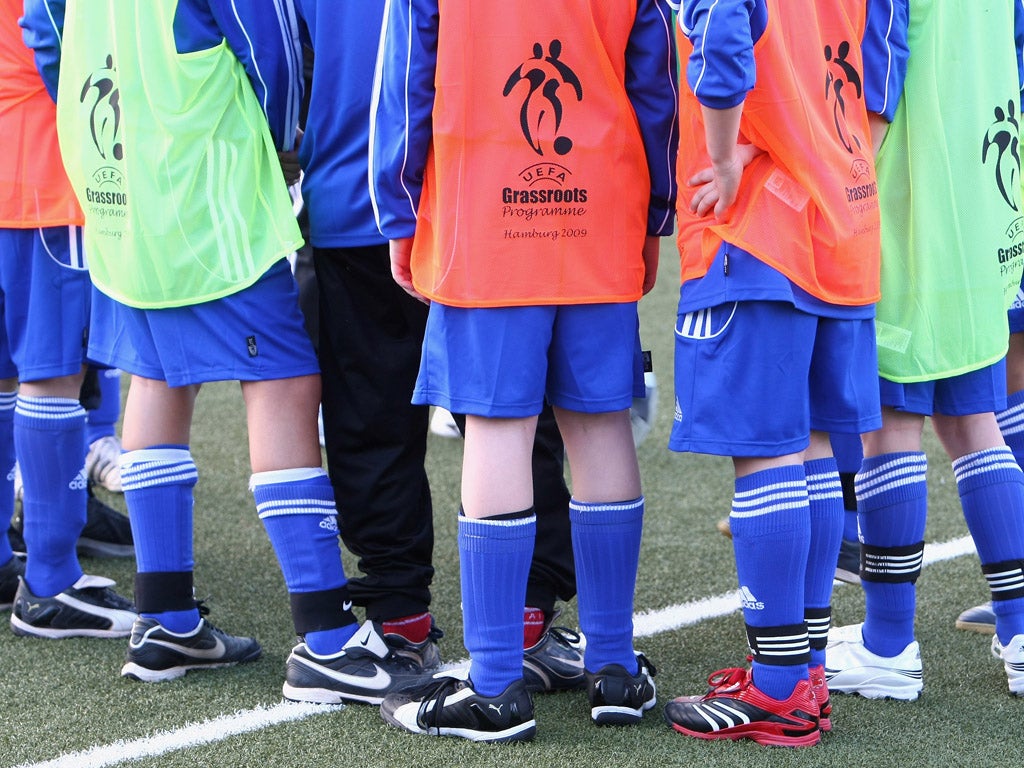Britain's real sporting heroes aren't the stars of 2012, but the tireless coaches working in our schools
Anyone who buys into negative stereotypes about British teenagers would have been surprised by the evidence in front of our writer at an awards ceremony last week

Last week I went to an awards event for the coaches and volunteers at Greenhouse, a sports charity I co-founded a decade ago. My day job takes me to many awards ceremonies, where famous, acclaimed, rich people get further glittering prizes. None of these has ever been remotely as uplifting.
Greenhouse’s young men, like the best volunteer coaches around the country, put others before themselves. They also do much more than coach sport. They use football, basketball, judo and table tennis to instil self-discipline, respect for others, teamwork, punctuality, a healthy lifestyle and the desire for self-improvement. Many started as youngsters on our programmes themselves, brought up in real poverty on the margins of our society by a single parent.
I was struck by the modesty, humility and grace of each of these young men, as well as by their passion to help their young charges from some of the poorest housing estates in Europe. And, boy, do they help the teenagers in their care. We were shown how the academic performance, behaviour reports, punctuality, self-esteem and fitness of these children soar in comparison to those of their peers, even after just a year on the programme.
Some people think sport alone has the power to achieve all this. But they are wrong. If that was the case, then those who kick a football or ride a bike best and most often would be among the best of role models for the young rather than the cheating, abusive, philanderers which they so often seem. You can be a great sportsman, but that doesn’t make you a great role model.
It became an orthodoxy this summer to consider our Olympic athletes better role models for the young than our professional sportsmen. Certainly there is something admirable about the long and lonely commitment and dedication of our Olympians. Their modesty, politeness and simple delight, whether winning or just participating, were infectious. But it was also impossible to ignore the utter and necessary self-centredness of many, and their sometimes ruthless use of those around them in their pursuit of purely personal glory.
Our sports coaches know that what glory they may achieve will be more modest and vicarious. But it is precisely because they are not elite sportsmen and come from the same communities as those they coach, that their shared background makes it easier for children to relate to them and to aspire to achieve something worthwhile like them.
In a world where so many teenagers seem to want to be a premiership footballer, a pop star or simply a celebrity, it surely makes sense both to raise aspirations but also to temper them with realism.
Oh, and did I mention that almost all the award winners were all black? At a time when newspaper Editors and their headline writers often point out how young black men account for so much of our crime and ask when and why does it all go so wrong, I found myself wondering when and why it can all go so right.
One answer came on the night from the basketball player, John Amaechi. He recalled that when he was an NBA player in Florida he had remembered the names of the two teenagers who were skipping school and hanging out in his gym. His interest in them was so novel to these kids that he was able to engage with them and eventually adopted them. John encouraged our coaches to keep reaching out to our teenagers. “Yours, like mine was, may be the only mindful conversation they will have all day”.
Many of these kids have had no meaningful relationships with adults and sporting activity provides the cover from which a relationship of trust and respect can be quickly built with coaches. As basketball coach, Tony (Payne), told us, " By supporting these young people, not being authoritative but working alongside them and befriending them, I feel that I am doing my bit to give them a better future."
Sport, as Nelson Mandela once observed, “speaks to youth in a language they understand. “ Thankfully, many of the inspirational sports coaches in your neighbourhood speak that language too.
Join our commenting forum
Join thought-provoking conversations, follow other Independent readers and see their replies
Comments